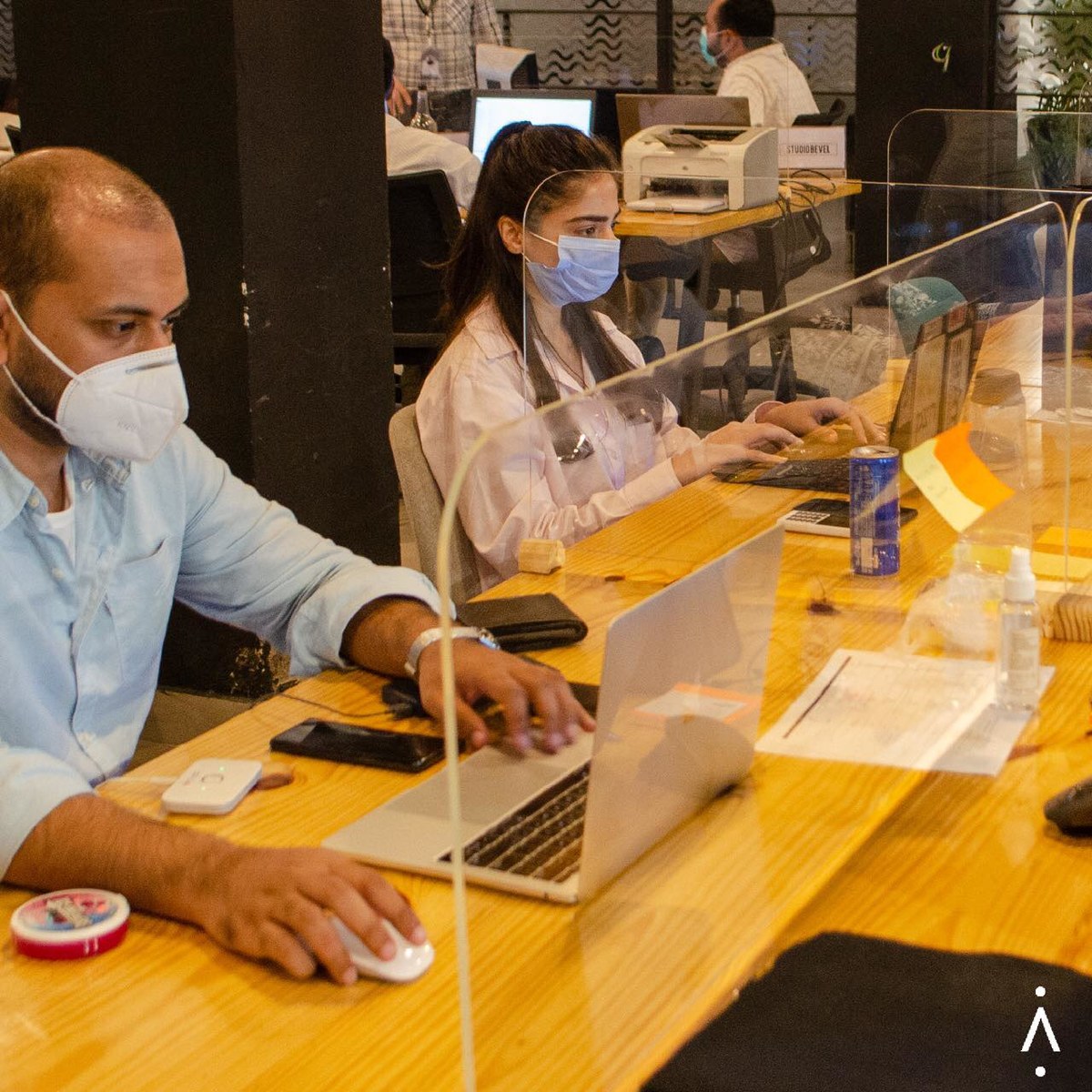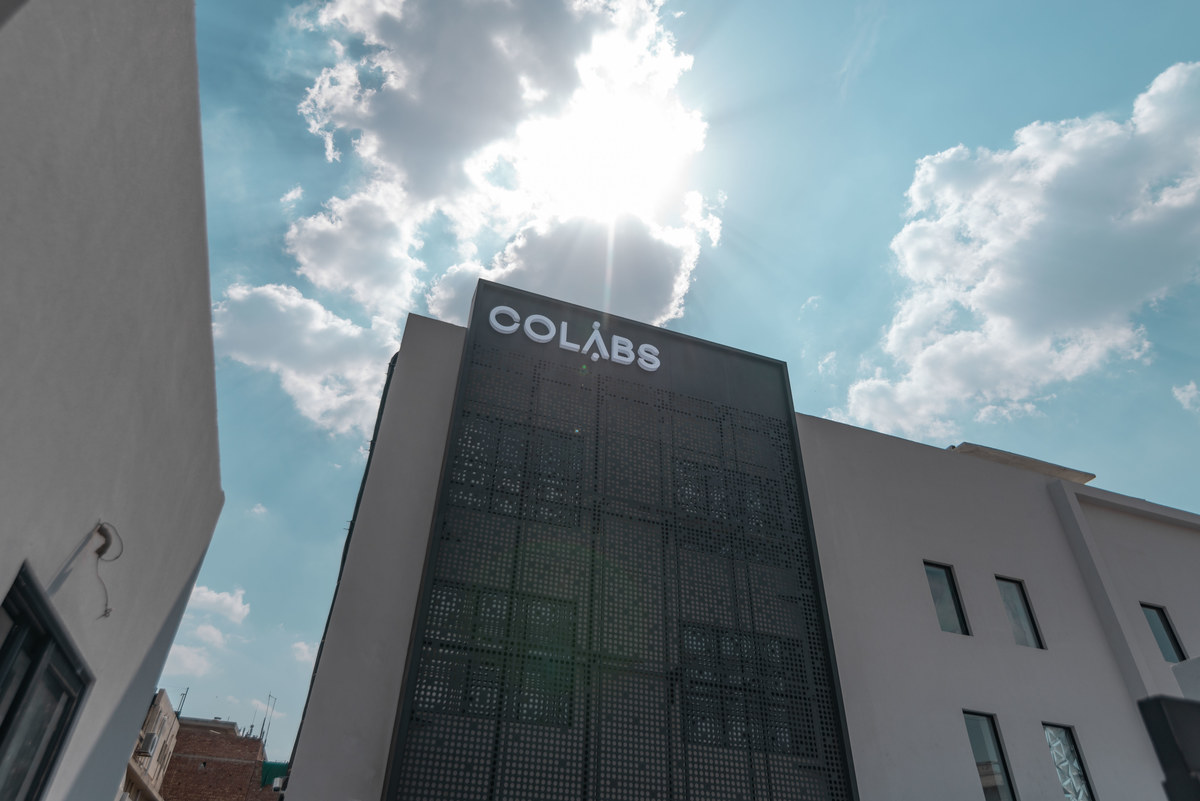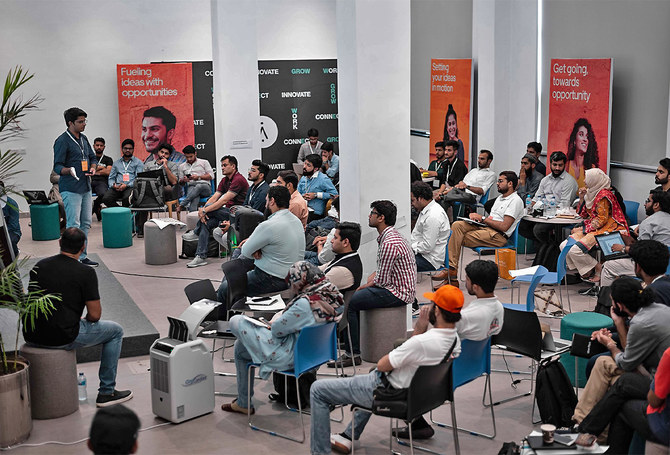KARACHI: COLABS, a Lahore-based startup helping entrepreneurs and freelancers build businesses through its shared spaces and technical support, has raised $3 million in a seed round for its expansion to other Pakistani cities and abroad, primarily the Middle East, company officials said on Friday.
The round was led by Indus Valley Capital, Zayn Capital and Fatima Gobi Ventures. This is the first time these three leading Pakistan-focused venture capitals (VCs) are investing together in a startup. The round was also joined by Shorooq Partners, Kinnow Capital, Muir Capital, Sai Ventures, and some key angels, including Turner Novak, Ali Yarali, William Hockey and Teddy Himler.
COLABS was founded in 2019 by Omar Shah, a former private equity investor, and his twin brother Ali Shah, who operates a family-run real estate and construction firm SABCON, which is COLABS’ development partner for its facilities. The COLABS team also includes its chief operating officer (COO) Fatima Mazhar, one of the former executives at Careem who had helped the ride-hailing service make its mark in many international markets.
“This is the first round of funding raised by the COLABS which would be utilized to expand operations in the country and abroad,” Shah, the co-founder and CEO of COLABS, told Arab News.
“With the investment raised, we target to create coworking spaces for a community of 100,000 entrepreneurs and freelancers in Pakistan in the next five years, starting with 10,000 members within the next two years. We have created around 1,200 seats and [are] targeting to move to Karachi and Islamabad later this year as part of the expansion plan.”

The photo posted on August 30, 2020 shows people working at a coworking space built by Colabs in Lahore, Pakistan. (Photo courtesy: Colabs)
By 2024, Shah informed, COLABS would move to launch its overseas operations, mainly targeting the Middle East market. He, however, said that before going for international expansion, their major focus was on domestic operations for the growth of the startup ecosystem.
“We have built a solid foundation to make it easy for freelancers, startups and even international companies which are eyeing Pakistan as potential destination,” he said.
“With the capital we have received from leading Pakistani investors, we’re now looking to turn our offerings into software-based solutions and productized services that could also be extended to people and institutions outside of our network.”
COLABS has created an impact by hosting more than 250 startup-related events annually since 2019, with an aggregate attendance of over 200,000 visitors, the shared workplace startup said in a statement. It has helped community members grow, hire the right talent, raise investment and thrive with the support provided by COLABS.

In this undated photo, the logo for Colabs, a Pakistan coworking space operator, is seen on the company's headquarters in Lahore, Pakistan (Photo courtesy: Colabs)
“Coworking spaces are foundational businesses on which ecosystems are built. They build a community of talent which builds companies and from them communities become ecosystems and ecosystems become industries,” said Tamer Azer, a partner at technology investment firm Shorooq Partners, which operates from the United Arab Emirates (UAE), Saudi Arabia and Bahrain.
“COLABS has quickly managed to center itself at the heart of Pakistan’s startup community and has built a phenomenal story that we are proud to support today and tomorrow as the company grows and creates the right infrastructure for Pakistan’s startup community.”
COLABS started as a coworking platform with a state-of-the-art facility in Lahore, but has since evolved to offer several additional services and tools to entrepreneurs and freelancers, including SaaS solutions, payroll processing, educational bootcamps, business incorporation, talent sourcing and management, and legal and tax compliance.
“The first time I visited COLABS, I found the community and energy to be a microcosm of the fast-growing Pakistani tech ecosystem,” Aatif Awan, founder and managing partner of the Indus Valley Capital, said.
“We’re thrilled to partner with the COLABS team to help them build the leading platform and community that will power the growth of Pakistani tech across startups, freelancers and global companies expanding into Pakistan.”
Faisal Aftab, co-founder and managing partner at Zayn Capital, said he had closely watched COLABS grow into one of the key players in Pakistan’s startup ecosystem.
“Omar and his team continue to do excellent work to accelerate the growth of the startup ecosystem here and we are excited to join their journey in serving tens of thousands of founders and freelancers across Pakistan,” Aftab said.
COLABS has a partner network of 100-plus organizations involved in taking initiatives to boost the Pakistani startup ecosystem growth, the company said.













